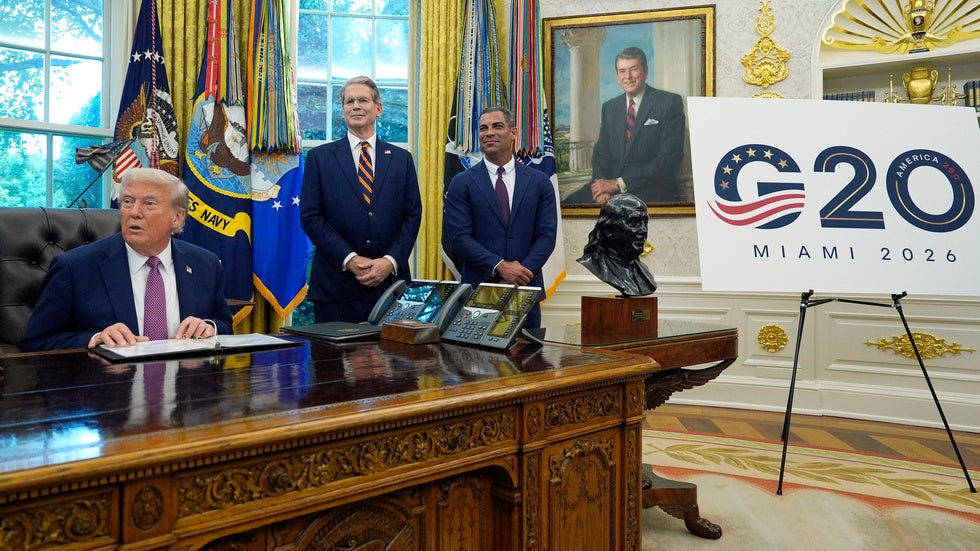Why democracy vs autocracy isn’t the definitive contest shaping the world?
- Brian Y. S. Wong
- Jun 10, 2025
- 4 min read

What is the fundamental contradiction shaping our world today? Some might say it’s the dichotomy between democracy and autocracy – a staple of former US president Joe Biden’s world view. However, that perspective seems outdated.
Biden’s successor, Donald Trump, is well known for being transactional. Last month he said Washington would lift sanctions on Syria, although the country’s new government hasn’t put it on the path to democracy. Syrian President Ahmed al-Sharaa has pitched a slew of positive perks, including a Trump Tower in Damascus.
Also, Trump’s eagerness for the US to accept the gift of a luxury Boeing 747-8 from Qatar, hardly a bastion of democracy, for use as Air Force One has raised questions about what is expected in return.
Meanwhile, the United States’ squeeze on academic freedoms – as evidenced by threats to revoke visas for Chinese students and international students harbouring divergent views – speaks volumes of a dystopian new normal. One would think democratic norms should encompass the embracing of pluralism and difference.
An alternative reading would suggest that our times are marked by a struggle between the Global North – comprising more advanced and affluent economies – and the Global South.
Yet this view ignores the existence of clear schisms within the Global South. For instance, neighbours India and China have a fraught relationship, despite positioning themselves as leaders among emerging powers. The ISEAS-Yusof Ishak Institute’s 2025 State of Southeast Asia Survey found that trust in the US has increased among policy elites in Association of Southeast Asian Nations (Asean) member states despite Trump’s return. South China Sea tensions were the top geopolitical problem for 51.6 per cent of those surveyed.
I believe a far more crucial distinction lies in the struggle between unilateralists and multilateralists.
Unilateralists are clearly on the rise in the post-industrial West. In Britain, Trump’s kindred spirit Nigel Farage used similarly virulent, xenophobic rhetoric rooted in populism to achieve a remarkable groundswell in support, attracting voters disillusioned with the country’s Conservative and Labour parties. While banned from competing in the next presidential election, Marine Le Pen remains popular among French voters who perceive the leadership in Paris as insufficiently “pro-French”.
Then there’s Geert Wilders who has collapsed the Dutch government from within, Alice Weidel who led the Alternative for Germany from the fringes into the parameters of apparently normal politics, and Trump-backed presidential candidate Karol Nawrocki who snatched victory from his liberal opponent in Poland.
What unites these individuals is not so much a coherent ideology or positive vision but a repudiation of what their countries have purportedly become. They declare that globalisation has done their countries more harm than good, that international rules and norms have been misappropriated by a global elite to deprive the people and that immigration must be stopped.
Such unilateral sentiments cut across political systems. Russian President Vladimir Putin’s invasion of Ukraine reflects a cynical contempt for international norms such as sovereignty. Trump prides himself on having a robust personal relationship with Putin, who he has praised for being a “smart” and “strong leader”.
As great and regional powers retreat, our world edges ever closer towards the Kindleberger Trap, where no power is willing to assume the responsibilities of global leadership. From public health crises to climate change, from macroeconomic instability to food shortages, the decline of the multilateral ethos and the resultant erosion of key institutions have real and severe consequences.
Amid the increasing weaponisation of trade policy through tariffs and export controls, multilateralists have much to lose. Some have turned to forming and building up “minilateral” institutions – outcome-oriented collectives of smaller countries working on specific common interests.
The largest free-trade agreement in the world – the Regional Comprehensive Economic Partnership – does not include the US. Last year, trade between Beijing and Asean nearly hit 16 per cent of China’s total trade. The bloc has surpassed both the European Union and the US to emerge as China’s leading trade partner.
While globalisation gets a bad rap for the alleged harms it inflicts upon producers and workers, we shouldn’t forget the benefits it has brought, such as the flow of cheap, high-quality goods manufactured for markets that might lack capital intensity or low labour costs.
Where does China stand in this dichotomy? It has certainly shown an inclination towards dealing with one counterpart at a time, for instance, over disputes in the South China Sea. Beijing is sceptical of the credibility of institutions it perceives to be skewed towards the West.
Yet it would be erroneous to conclude that China’s leadership is predisposed towards unilateralism. After all, China’s acceding to the World Trade Organization in 2001 was followed by a seven-year window of significant economic strides. The country’s embrace of pro-market reforms, its crackdown on bureaucratic inefficiencies and its introduction of foreign technologies and innovation proved instrumental in unlocking critical governance outcomes.
Furthermore, through multilateral platforms such as the Belt and Road Initiative and Brics, China is seeking to address a crucial deficiency that it has long had during the 20th century – the ability to project global economic and strategic influence without resorting to the same militaristic means that the US has had to finance with exorbitant sums.
One can only hope China draws the right lesson from its current turmoil embroiling the US – that unilateralist geostrategic adventurism comes at a hefty price and that pacifist multilateralism can and must remain the path forward. Peace is worthy of defending, even if its antithesis is more tempting.
This article by Brian Y. S. Wong first appeared in South China Morning Post on 10 June 2025. It is featured here as part of our Member Publications archive.




Comments